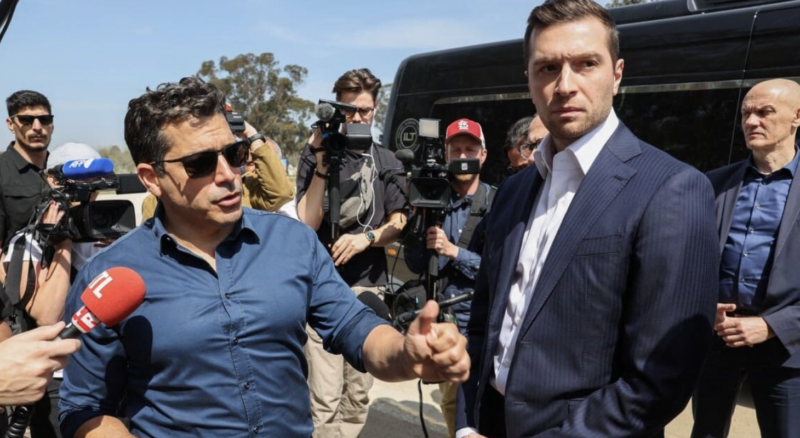An international conference on antisemitism, held in Jerusalem from March 26-27, was meant to unite voices against rising hatred. Instead, it turned into a political firestorm. Organized by Israel’s Ministry of Diaspora Affairs and led by conservative Likud minister Amichai Chikli, the event drew sharp criticism after extending invitations to European nationalist parties.
Among the controversial attendees were France’s National Rally leader Jordan Bardella and Marion Maréchal of the Reconquest party, who framed radical Islam as the West’s common enemy. Spain’s VOX party also had a presence, along with Hungarian representatives from Viktor Orbán’s Fidesz, Sweden Democrats, and former Slovenian Prime Minister Janez Janša.
But not everyone welcomed the guest list. Prominent leftist intellectual Bernard-Henri Lévy boycotted the event, condemning what he saw as Israel aligning itself with the global far right. He argued that turning Jerusalem into a hub for “illiberal” politics threatened the country’s democratic values. German antisemitism commissioner Felix Klein and British academic David Hirsh also withdrew, with Hirsh criticizing the event for amplifying not just antisemitism but also racism and Islamophobia.
Israeli officials, however, pushed back hard. Chikli dismissed the criticism, stating that today’s real threat to Jewish communities in Europe comes from radical Islam—not nationalist parties. He accused the left of clinging to outdated narratives while ignoring the present dangers.
For conservative voices, the event marked a crucial shift—one that acknowledges nationalist movements as key players in combating radical extremism and mass migration. This alignment signals a broader geopolitical shift, as Israel increasingly finds common ground with Europe’s right-wing factions. But as tensions rise, one thing is clear: the battle over who gets a seat at the table in the fight against antisemitism is far from over.




